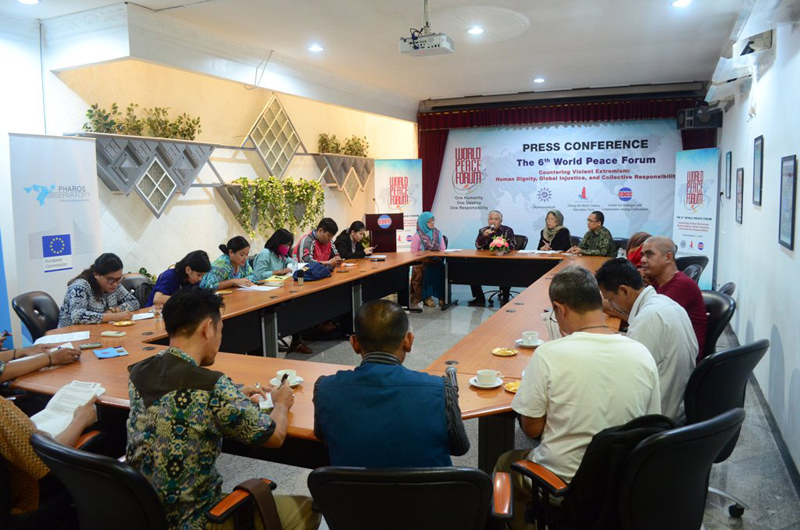Australia/Israel Review
The Last Word: Friendship in Java
Nov 24, 2016 | Jeremy Jones

Jeremy Jones
I oppose bigotry, on moral grounds. To discriminate against, harass or otherwise harm a person is never acceptable, and the offence is amplified when it is done on proscriptive grounds.
In Indonesia recently, I had reason to reflect on bigotry, particularly as it relates to problems of terrorism, extremism and threats to civilised societies.
My first engagement was in Jakarta, at the 6th World Peace Forum (WPF) – hosted by the Indonesian Muslim organisation Muhammadiyah, the related Centre for Dialogue and Cooperation amongst Civilisations and a Malaysian NGO, the Cheng Ho Trust. This brought together politicians, religious leaders, scholars, activists and bureaucrats from more than forty countries, including the USA, Russia, Pakistan, Australia, India, Tunisia, Nigeria and Japan.
Indonesian speakers included the President, the Foreign Minister and other prominent figures from politics, academia and religious organisations. The non-Indonesian “star” was Xanana Gusmao, East Timor’s former President and Prime Minister, who exudes passion, intelligence and humility.
I spoke at the first plenary session, on the topic of Combating Violent Extremism. My co-panellists, from Pakistan and Indonesia, concentrated on Islamist groups and their actions against non-Muslims (and other Muslims), while I spoke of a danger of the ideologies which rationalise and justify physical threats and actions, and also on right-wing radicalism.
The loudest voices at the Forum against the activities of “Islamic State” were those of Muslims, and it was also a Muslim who challenged an Iranian delegate on that country’s mistreatment of minorities such as Baha’i.
While anti-Muslim bigotry (along with other manifestations of prejudice) had been condemned throughout the proceedings on moral grounds, towards the conclusion of the Forum a young activist from Belgium introduced an additional concern.
In a passionate presentation, she outlined the manner in which recruiters exploited even ambiguous examples of anti-Muslim rhetoric and action to promote their radical, hateful, violent alternative.
So, on the one hand, the far right’s antisemitism fitted into the warped Islamist extremist world view in showing that the sins of Jews are self-evident, while at the same time far-right attacks on Islam and Muslims rationalised existential enmity to western society.
After the Forum I had a series of meetings, lectures, dialogues and discussions at Islamic institutions across Java, and this belief was voiced often.
In many of the encounters, having a Jewish speaker ready and willing to discuss Judaism, Israel and interfaith dialogue was welcomed enthusiastically.
Questions arose as to how I understood some specific Quranic verses, on the nature of Jewish peoplehood and aspects of Israeli, Palestinian and international politics.
Invariably polite and friendly, students and academics were forthright in challenging me on history, current affairs and scenarios for the future.
In a number of encounters, I gained backing from local scholars who had travelled to Israel, the Palestinian Authority, the USA and elsewhere.
One memorable moment came when a senior Islamic spiritual leader and educator gave a mini-lecture on how the mainstream media – in Indonesia as elsewhere – distorts the picture of Israel as it does on other matters.
When challenged, at another lecture, on how I responded to some of the less-than-flattering references to Jews in the Quran, I received a good reaction on the grounds I was familiar with not just the verses cited but also the diversity of commentaries concerning them. Nevertheless, it was difficult not to be concerned over the preconceptions and misconceptions which I was asked to address.
My visit reinforced the importance of Indonesia, the world’s most populous Muslim-majority nation, as a vital ally in the battle against extremists for hearts and minds. I left Indonesia only regretting I didn’t have far more time available to interact with both those I met and the many more who expressed an interest in doing so.
Tags: Antisemitism, Indonesia, Malaysia






